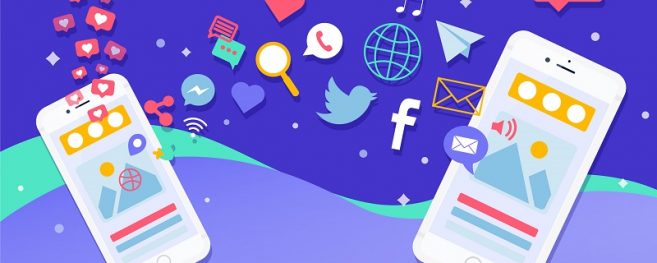Impact of Social Media on Healthcare Businesses

When social media first came to the scene in the early 2000s, nobody expected that it would become a mainstay of our lives. But now that social media platforms are used by billions of people around the world, governments and businesses of all types have had to adapt.
One of the major impacts that social media & healthcare digital marketing has had is on healthcare. People are now getting healthcare information faster than ever before. They’re also getting misinformation more than any time in our history. Our focus in this article is to detail the impact of social media on healthcare businesses and how healthcare business owners can take advantage of it while still staying within legal and ethical guidelines.
Impact of Social Media on Healthcare
The ease of sharing information.
Thanks to social media, it’s easier than ever for people to access and share information about any topic, and healthcare is no different.
Of course, this has its downsides. Because social media is a free space where anyone can say what they wish, there’s nothing stopping people from spreading or sharing misinformation about health. Those who own practices need to be careful about the content they share. Healthcare business owners are also encouraged to use their platform to refute misinformation that they see. A study published in 2017 shows that people’s comments influence how others interpret information and that commenting on misinformed opinions can be effective in changing people’s minds.
The new connections that medical professionals can have with their audience.
Medical professionals have started to take on authoritative positions, regardless of their research experience and published works, building a base of readers entirely through social media. Doctors and researchers can share their point of view with the world and connect with those who benefit from what they have to say.
It’s become a lot easier for medical professionals to have a real relationship with their audience, taking in feedback as soon as it comes in, and sharing the stories of those they helped.
The rise of patient influencers.
Patients are taking to social media to detail their experiences dealing with their condition. Some people have spoken at length about receiving bariatric surgery or chiropractic treatment, whereas others talk about what it’s like to have a chronic condition with no cure.
These patients, who are not medical professionals, share their stories and what worked for them. As a result, other patients listen to them and sometimes take their advice. This can be a good thing, but it can also be very dangerous.
Patient influencers are not qualified to give medical advice but are free to share their stories. It’s important that healthcare entrepreneurs understand a little bit about where patients get their information while also ensuring that patients do not misconstrue a fellow patient’s narrative for medical advice.
If you would like to learn more about how social media can be used in healthcare, contact Sequence Health
Check out our post where we share 4 ways that patients use social media to chronicle their weight loss journey





